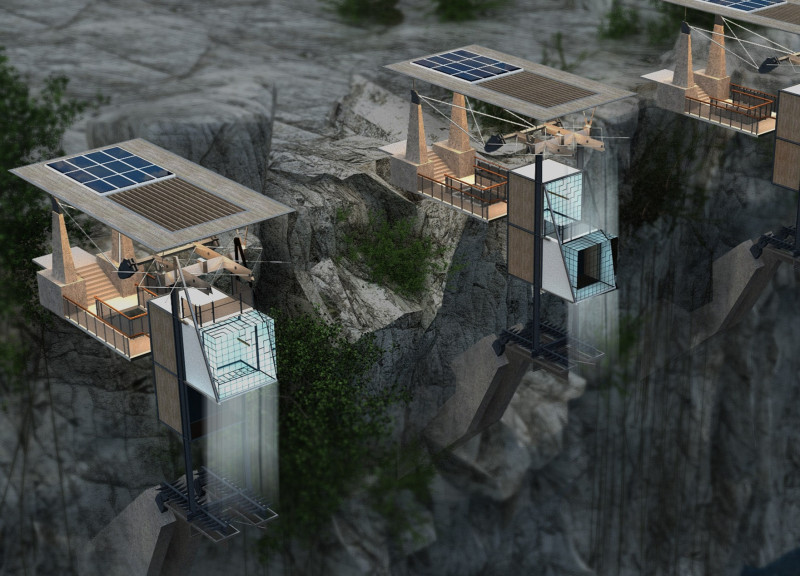5 key facts about this project
The Elevator House stands as a response to the needs of contemporary urban living, designed within a compact area of 25 square meters. Located in a city that emphasizes efficiency and eco-friendliness, the building combines practical living spaces with a sense of comfort. The main idea is to create a balanced environment that allows for multiple functions—living, working, and cooking—while making the most of the available space.
Modular Design
The house features two separate blocks. One block is fixed, containing the essential living areas such as the bedroom and living room. The other block is movable and serves as a workspace. This arrangement promotes flexibility, allowing the space to be adapted for different activities throughout the day. A metal frame supports the structure, and a glass partition can change positions, offering options for privacy or openness depending on user preference.
Sustainable Features
Sustainability is a key aspect of the design, with notable elements like a water filtration system and a solar inverter included. These features work together to reduce energy consumption and support eco-friendly living. A separate area for services incorporates storage solutions for the kitchen, bathroom, and electrical systems. This organization ensures a tidy environment while facilitating everyday living.
Material Selection
The choice of materials significantly contributes to the project. Wood-steel insulated panels provide strength and improve energy efficiency. Wooden glass floors present a contemporary look while maintaining safety for occupants. Large indoor and outdoor glass panes serve to connect the interior to the outside, enhancing views and natural light within the home.
Design Details
Hanging plants are cleverly included to enhance air quality and add visual interest. A bi-folding table designed for reading or working introduces functionality without taking up too much space. Outdoor glass panels bring in additional light, creating a bright atmosphere that fosters a welcoming environment for daily activities and relaxation.




















































